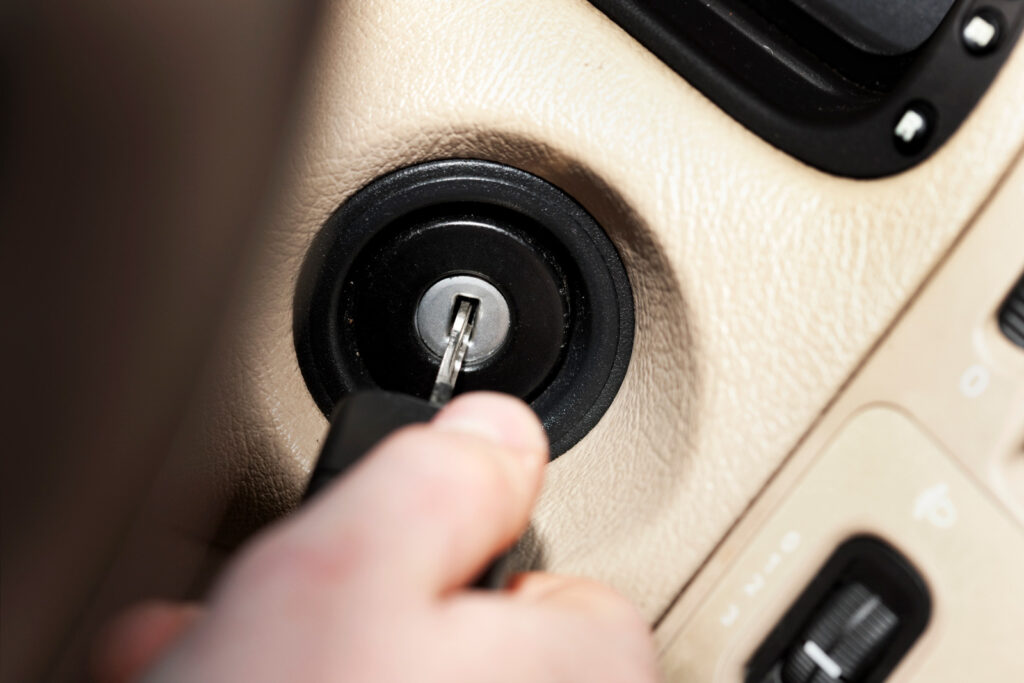
Smooth driving isn’t just about comfort and convenience; it’s also about safety. When it comes to vehicle safety, the ignition system plays a crucial role. From starting your engine to powering essential components, the ignition system is the ignition switch that sets your journey in motion. However, like any mechanical system, it’s prone to wear and tear over time, leading to potential safety hazards if left unchecked.
In this blog, we’ll explore the importance of ignition repair in ensuring vehicle safety and how addressing ignition issues promptly can make all the difference on the road. So buckle up as we delve into the key to smooth driving: ignition repair.
Understanding the Importance of Ignition Systems
The ignition system is a crucial component of your vehicle, providing the spark needed to start and run the engine. It consists of several parts, including the ignition coil, spark plugs, distributor, and ignition switch, and plays a significant role in ensuring optimal vehicle performance and safety. A well-maintained ignition system supports smooth engine operation, responsive throttle response, and overall driving performance while contributing to efficient combustion and fuel economy. Regular maintenance and prompt repair are necessary to address any issues that may arise and guarantee a safer and more enjoyable driving experience.
Signs of Ignition System Failure: What to Look For
Ignition system issues can manifest in various ways, affecting everything from the engine starting to the overall driving experience. Here are some common signs to watch out for:
Difficulty Starting the Engine:
One of the most obvious signs of ignition system failure is difficulty starting the engine. If you find that your engine cranks but struggles to turn over or fails to start altogether, it could indicate problems with the ignition system, such as a faulty ignition switch, worn-out spark plugs, or a malfunctioning ignition coil.
Engine Misfiring:
Engine misfiring occurs when one or more cylinders fail to ignite properly, resulting in a noticeable hesitation, jerking motion, or rough idle while driving. Misfiring can be caused by a range of ignition system issues, including worn spark plugs, damaged ignition coils, or faulty ignition timing.
Poor Fuel Economy:
If you notice a sudden decrease in fuel efficiency or a noticeable increase in fuel consumption, it could be a sign of ignition system problems. A malfunctioning ignition system may fail to ignite the fuel-air mixture efficiently, leading to incomplete combustion and wasted fuel.
Engine Performance Issues:
Ignition system failure can also manifest in diminished engine performance, including reduced power output, sluggish acceleration, and overall lacklustre performance. If your vehicle feels less responsive or struggles to maintain speed, it may indicate underlying ignition system issues that require attention.
Illuminated Check Engine Light:
When your vehicle’s ignition system has issues, it can trigger the onboard diagnostics system, causing the check engine light on the dashboard to turn on. If the check engine light remains on or flashes intermittently, it is crucial to take your vehicle to a qualified technician for inspection. Ignition system failure may be the underlying issue, and a proper diagnosis is necessary to address the problem.
Unusual Engine Sounds:
A malfunctioning ignition system may produce unusual engine sounds, such as popping, backfiring, or clicking noises. These sounds could indicate issues with spark timing, ignition coil arcing, or spark plug fouling, all of which require prompt attention to prevent further damage to the engine.
If you experience any of these symptoms, it’s advisable to have your vehicle inspected by a qualified technician to diagnose and repair the underlying ignition system issues.

The Risks of Ignoring Ignition Issues
Ignoring ignition issues in your vehicle can pose significant risks to both your safety and the reliability of your vehicle. These risks can manifest in various ways, impacting not only your driving experience but also the overall health of your vehicle. Here are some key consequences of ignoring ignition issues:
Safety Hazards: Ignition system failures can lead to unexpected stalling, engine misfires, or loss of power while driving, increasing the risk of accidents, particularly in hazardous driving conditions or high-speed situations. Ignoring these issues can compromise your ability to control your vehicle safely, putting you and your passengers at risk of injury or collision.
Vehicle Breakdowns: Ignition system problems left unaddressed can escalate into more severe mechanical issues, such as complete engine failure or breakdowns. A malfunctioning ignition system can strain other engine components, leading to costly repairs and potentially leaving you stranded on the side of the road.
Increased Repair Costs: Ignition system problems should be dealt with promptly as they can worsen over time, leading to more severe damage and higher repair costs in the future. A minor ignition problem, such as worn spark plugs or a faulty ignition coil, can escalate into more significant engine issues that may require extensive repairs or even engine replacement.
Reduced Fuel Efficiency: Ignition system problems can impair the combustion process within the engine, resulting in incomplete fuel combustion and decreased fuel efficiency. Ignoring these issues can lead to increased fuel consumption and higher fuel costs over time as your vehicle struggles to operate efficiently.
Environmental Impact: Ignoring ignition issues can contribute to increased air pollution and environmental degradation, as your vehicle emits more pollutants into the atmosphere.
Don’t wait until ignition issues escalate into more significant problems; prioritize the maintenance and repair of your vehicle’s ignition system to protect yourself, your passengers, and other road users.
Components of the Ignition System: Key Functions and Maintenance
The ignition system of a vehicle comprises several crucial components, each playing a vital role in starting and running the engine smoothly. Regular maintenance of the ignition coil involves vigilance for signs of wear or damage, such as cracks in the insulation or corrosion on the terminals, necessitating timely replacement when necessary.
- Spark plugs are another integral part of the ignition system. These small, cylindrical components deliver the high-voltage electrical spark from the ignition coil to ignite the fuel-air mixture in the combustion chamber. Proper maintenance involves periodic inspection and replacement based on manufacturer recommendations or signs of wear, such as fouling or erosion of the electrodes.
- In older ignition systems, the distributor played a crucial role in distributing the high-voltage spark from the ignition coil to the appropriate cylinders at precise moments. Maintenance of the distributor or ignition module involves checking for wear or damage to the distributor cap, rotor, and ignition control module and replacing them as needed.
- The ignition switch, though often overlooked, is equally vital. It controls the electrical power supply to the ignition system and other vehicle accessories, enabling the driver to start the engine by turning the key in the ignition cylinder. Regular maintenance involves ensuring smooth operation and checking for signs of wear or electrical issues, such as difficulty turning the key or intermittent starting problems.
- Lastly, the wiring and connectors in the ignition system play a crucial role in delivering electrical power from the battery to the ignition components. Over time, wiring can become corroded, frayed, or damaged, leading to poor electrical conductivity and ignition system malfunctions.
Understanding the key components of the ignition system and performing regular maintenance ensures reliable vehicle operation. Regular inspections, preventive maintenance, and prompt repairs can help prevent ignition system failures, ensuring smooth engine performance for miles to come.
Conclusion
Ignition repair plays a pivotal role in maintaining this system’s integrity, addressing issues that could compromise safety and reliability on the road. By understanding the critical role of ignition repair in ensuring vehicle safety, drivers can prioritize timely maintenance and address any warning signs of ignition system failure promptly. From addressing difficulty starting the engine to preventing engine misfires and stalling, ignition repair serves as a proactive measure to mitigate risks and maintain the smooth operation of the vehicle.
By partnering with qualified automotive technicians and adhering to regular maintenance schedules, drivers can uphold the key to smooth driving and enjoy peace of mind knowing their vehicles are equipped to navigate the road safely and efficiently.